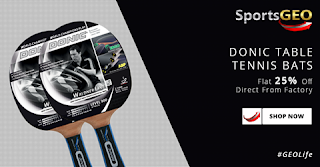About Badminton Racket
Badminton is a racket sport which is
extremely popular and very easy game to learn and fun to play at any level of
ability. It is played using rackets to hit
a shuttlecock across a net. Although it may be played with
larger teams, the most common forms of the game are "singles" and
"doubles". Badminton is often played as a casual outdoor activity and
formal games are played on a rectangular indoor court. Points are scored by
striking the shuttlecock with the racket and landing it within the opposing
side's half of the court. Each side may only strike the shuttlecock once before
it passes over the net. Play ends once the shuttlecock has struck the floor or
if a fault has been called by the umpire, service judge, or (in their absence) the
opposing side.
Like other racket sports, Badminton racket
is generally made of different types of Materials. Most commonly used materials
are Graphite, Aluminum, Boron and Kevlar or the Wood. The vast majority of
rackets manufactured today use graphite in one form or another as the base
ingredient. Graphite is remarkably strong for its relative light weight. It
provides terrific power, as well as good control and feel for the ball.
·
The
racket shall be a frame not exceeding 680 mm in overall length and 230 mm in
overall width.
·
The
handle is the part of the racket intended to be gripped by the player.
·
The
stringed area is the part of the racket with which it is intended the player
hits the shuttle.
·
The
head bounds the stringed area.
·
The
shaft connects the handle to the head.
·
The
throat (if present) connects the shaft to the head.
The stringed area:
·
It
shall be flat and consist of a pattern of crossed strings either alternately
interlaced or bonded where they cross.
·
The
stringing pattern shall be generally uniform and, in particular, not less dense
in the centre than in any other area.
·
It
shall not exceed 280 mm in overall length and 220 mm in overall width. However,
the strings may extend into an area which otherwise would be the throat,
provided that the width of the extended stringed area does not exceed 35 mm and
provided that the overall length of the stringed area does not then exceed 330
mm.
The racket:
·
It
shall be free of attached objects and protrusions, other than those used solely
and specifically to limit or prevent wear and tear, or vibration, or to
distribute weight, or to secure the handle by cord to the player’s hand, and
which are reasonable in size and placement for such purposes.
·
It
shall be free of any device that makes it possible for a player to change
materially the shape of the racket.




Comments
Post a Comment